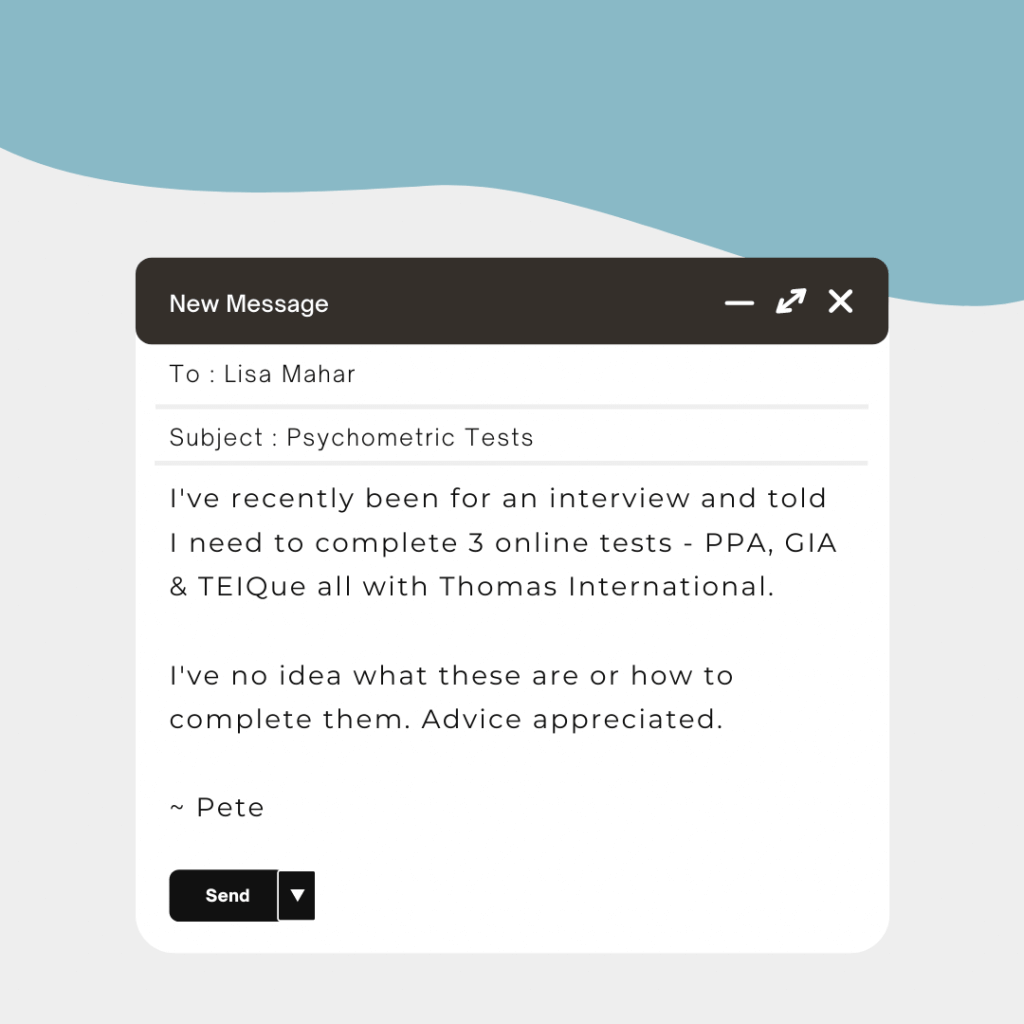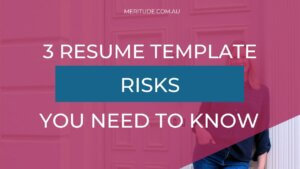One of my clients recently emailed me to ask about Talent Assessments.

Can you relate to that?
If you’ve ever struggled with understanding psychometric tests and what they mean for your job search, you’re in the right place. In this post, I’ve partnered with Workforce Psychologist Ryan Ng from Talent Identify to answer your questions.
We will walk you through what these tests/assessments are about, plus key tips to complete them.
Ready? Let’s get started.
Prefer video? Watch in full here 
What are the types of Psychometric assessments job seekers face?
First things first, the basics. These assessments aren’t about asking you for your dirty dark secrets.
Instead, they come down to 2 core categories of tests to help determine compatibility:
- Can do (aptitude / skills)
- Will do (personality)
Most often, you’ll come across tests relating to your cognitive ability and personality fit.
With many different tests on offer, here are some things you should know to be better prepared.
Circling back to the email from my client, he mentioned 3 types of tests – GIA, PPA, and TEIQue.
Let’s unpack what these tests are about.
GIA = General Intelligence Assessment.
This one belongs to the “Aptitude” category of assessments. Think maths, problem-solving, logic, reasoning etc. It’s where you solve problems or show a skill related to a job.
PPA = Personal Profile Analysis.
This one belongs to the “Personality” category of assessments, and there is a huge range.
Everything from asking simple adjectives that place people into 1 of 4 buckets, to tests that objectively predict performance.
Valid personality tests are meant to help you and the employer find a ‘fit’. Think of it as questions to ask before you get married.
TEIQue = Emotional intelligence.
These can be “Aptitude” and/or “Personality”. This test is becoming more of a big deal because companies are focusing on employees being self/social aware.
Plus they want to see that you can self-manage and manage other relationships.
As a candidate, you must learn how to work with all of these types of tests.
What are employers looking for in the results? Can you fail them? Is there such a thing as a good score?
There isn’t really an absolute pass or fail.
It is more about which candidate is the best fit. So a good score is just the one that’s your “true” score.
For Aptitude/IQ tests, this is based on your ability to solve problems. Your “score” is calculated by how fast you complete the questions and how many you answer correctly.
Your job is to try your best and ensure you are focused.
Personality tests focus on ‘fit’. There isn’t a right or wrong personality.
Generally, a ‘good score’ is how close your personality aligns to the job in question. Just be honest and be yourself, that’s what counts most.
Are these types of tests fair? What are the pros and cons for me?
Fairness depends on the test’s reliability and validity, plus whether the employer has picked the right tool.
A lot depends on the employer’s capability and maturity with the tools they are using.
There is a big difference between psychometrics vs type-based surveys. A genuine psychometric test predicts performance; type-based surveys are more “fun” tools.
Sadly, which tool they pick isn’t in your control.
Pros
- Valid tests help determine compatibility in an objective way.
- Talent Assessments are only one part of the hiring process. People hire people, after all.
- These tests can help make your strengths visible and earmark you as the preferred candidate.
Cons
- If the employer uses the wrong assessment, then the odds are stacked against you.
Just a side note on the cons.
If the employer uses a terrible assessment tool and is basing a hiring decision on something like “Which of these 4 Disney princesses are you?” then perhaps it’s a good thing they didn’t hire you.
Do you want to work at a place that seems ideal but get in and not be seen for your unique contributions? 🤓
Can I refuse to take a test? Are they legal?
Pre-employment tests are legal and you can refuse to take them of course, no one can force you.
But that may lead to you not getting the role. You must be willing to accept either outcome.
However, these tests are meant to highlight your strengths and identify if you will be a good fit for that workplace.
There are exceptions!
For example, a circumstance that would make the test unfair for a candidate. Think language barriers, disability, dyslexia etc.
In these instances, you might still need to take the test, but employers do have to make accommodations to make it easier for you. So make sure you articulate any requests!
How can I prepare?
You’ve made it this far……so how do you get ready for one of these tests?
Well, practice tests for IQ are usually given before starting the test.
Sometimes you also get practise questions for personality assessments – although these are really about being honest.
Google is your best friend here if you want to do even more practice and get comfortable, particularly with IQ tests.
Just make sure you’ll be in a spot where you won’t be distracted or disturbed and have a good internet connection.
At the end of the day, just remember that your aim is to balance between presenting your best, yet also being yourself so that if/when you are selected, you will actually be a fit and won’t end up hating your time in the role.





